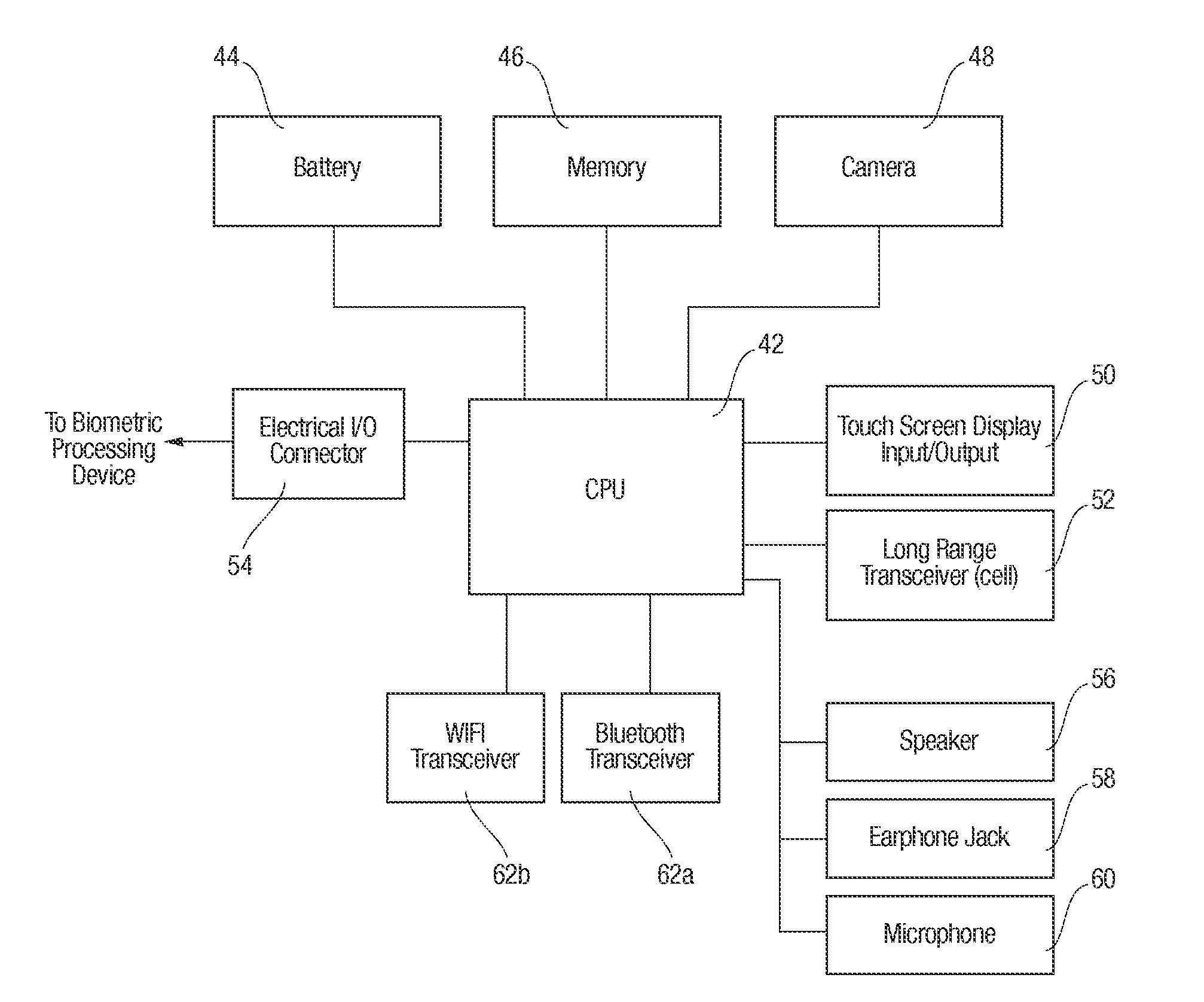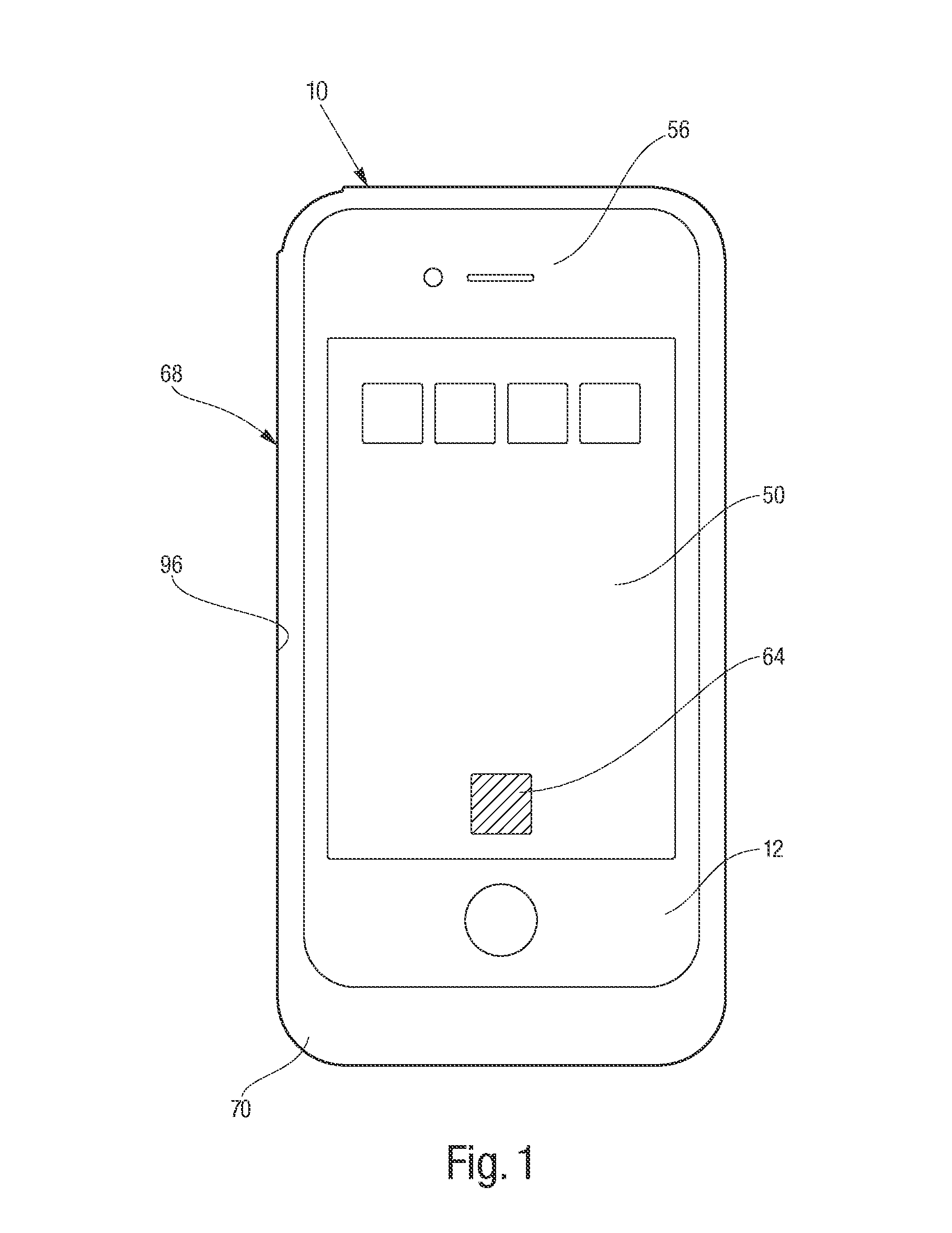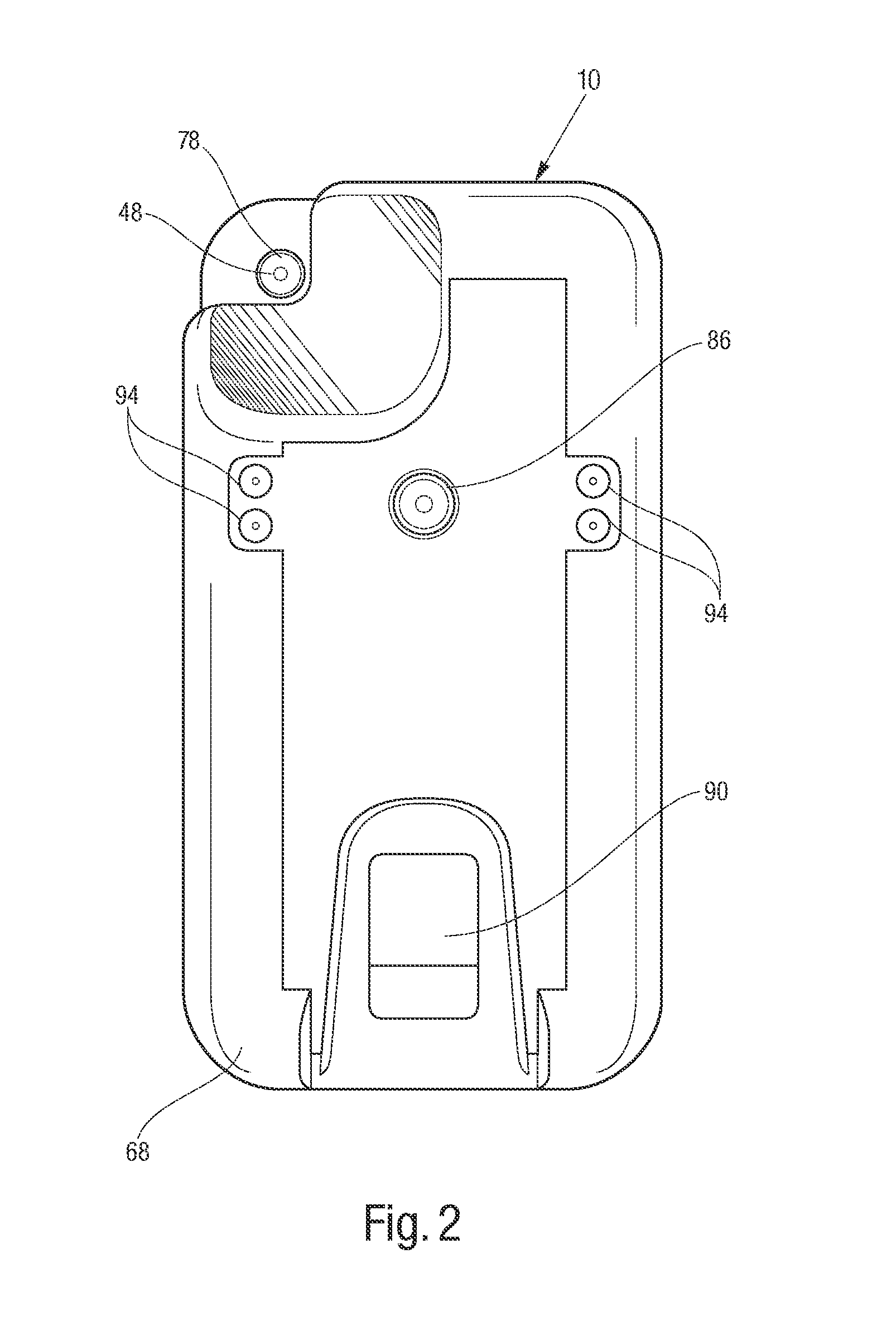Mobile, wireless hand-held biometric capture, processing and communication system and method for biometric identification
a biometric identification and mobile technology, applied in the field of biometric identification systems, can solve the problems of difficult use of systems, limited usefulness in many real-time applications, and limited use of prior art systems, and achieve the effect of quick iris imag
- Summary
- Abstract
- Description
- Claims
- Application Information
AI Technical Summary
Benefits of technology
Problems solved by technology
Method used
Image
Examples
Embodiment Construction
[0039]Referring now to the drawings, the biometric processing and communication system of the instant invention is illustrated and generally indicated at 10 in FIGS. 1-11. As will hereinafter be more fully described, the instant invention provides a biometric processing and communication system 10 comprising a commercially available wireless communication device generally indicated at 12, a biometric processing device generally indicated at 14, and associated software and processes which enable the handheld wireless communication device 12, using commercially established wireless communication networks, to capture and process a digital image 16 of a human biometric attribute, for transmission via a secure and encrypted internet connection to a remote server.
[0040]The term “human biometric attribute” or “biometric attribute” is intended to encompass fingerprints, facial features, iris, retina, and any other attribute, which is unique to an individual and can be scanned and compared t...
PUM
 Login to View More
Login to View More Abstract
Description
Claims
Application Information
 Login to View More
Login to View More - R&D
- Intellectual Property
- Life Sciences
- Materials
- Tech Scout
- Unparalleled Data Quality
- Higher Quality Content
- 60% Fewer Hallucinations
Browse by: Latest US Patents, China's latest patents, Technical Efficacy Thesaurus, Application Domain, Technology Topic, Popular Technical Reports.
© 2025 PatSnap. All rights reserved.Legal|Privacy policy|Modern Slavery Act Transparency Statement|Sitemap|About US| Contact US: help@patsnap.com



